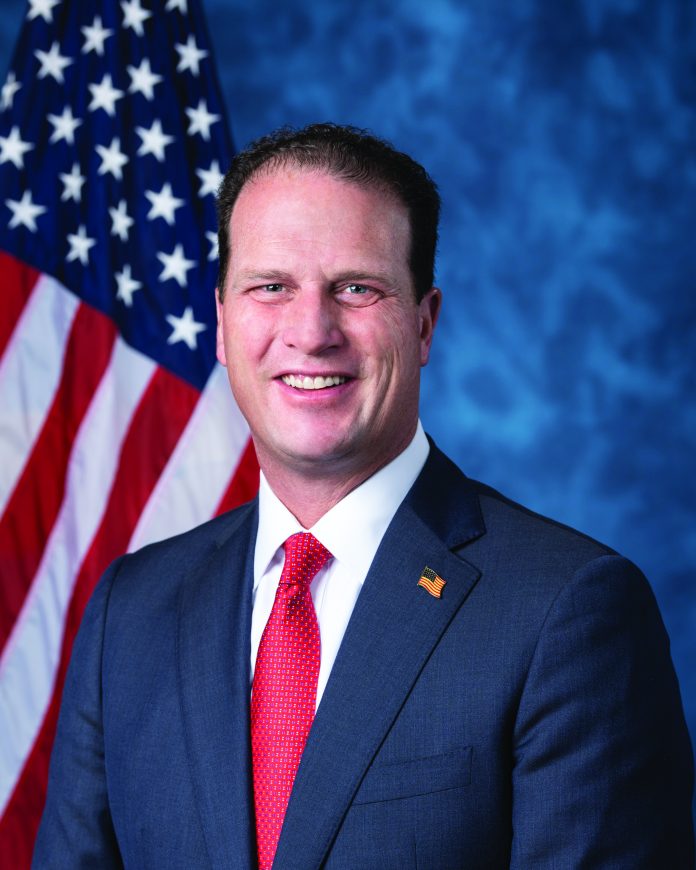WASHINGTON, DC On Thursday, Congressman August Pfluger (TX-11) released the following statement after the U.S. House of Representatives passed the National Defense Authorization Act (NDAA) for Fiscal Year 2024. The legislation now needs the President’s signature to become law.
Rep. August Pfluger (TX-11): “Americans deserve a military that is laser-focused on lethality and protecting our safety. I proudly voted for this strong national defense bill which includes key conservative victories—including securing the largest troop pay raise in twenty years, ending the woke ideology infiltrating our military, and a Parents’ Bill of Rights for military families. As the Representative for Goodfellow Air Force Base and parts of Fort Cavazos, I am especially proud of the improvements this legislation makes to better support our military families, and critical investments for barracks, power generation, and other projects at Fort Cavazos.”
Congressman Pfluger Specific FY 2024 NDAA Initiatives:
- Requires the Secretary of Defense to notify officials on the federal, state, and local level when the Department of Defense houses migrants using a military base, repurposes a base or creates a base for that purpose.
- Mandates the Department of Defense to adapt its standard communications system, Link-16.
- Requires deliveries of KC-46A Pegasus aircraft to Israel while also providing training to Israeli pilots immediately.
Overall FY 2024 NDAA Highlights:
Military Service Members and Families:
- Supports a 5.2 percent increase in servicemember basic pay, the largest pay raise in over 20 years.
- Expands reimbursements available to military spouses for relicensing or business costs when servicemembers transfer locations.
- Extends military recruitment and retention bonuses and special pay authorities.
- Ensures members of the National Guard and Reserve are reimbursed for all housing costs during military training.
- Expands the in-home childcare pilot program and childcare capacity by partnering with off-installation childcare providers to focus on more rural areas.
- Requires the Department of Defense (DoD) to identify locations where there is known contamination of drinking water systems on military installations and develop detailed plans to remediate and clean up these sites.
- Establishes a “Parents Bill of Rights” for military parents of children attending schools operated by the Department of Defense Education Activity. Ensuring military parents have the right to review curriculum, books, and instructional materials; and provide consent before schools conduct medical exams or screenings.
- Provides for methodological parity among military pay grades and greater flexibility to adequately respond to the housing estimation challenges posed by rapidly changing housing market conditions across the United States.
Critical Race Theory and Gender Ideology:
- Prohibits LGBTQ+ pride and any other unapproved flags from being flown at military installations.
- Requires that military accession or a promotion in the Department of Defense be based on individual merit and demonstrated performance.
- Prohibits funds from being used to promote critical race theory (CRT) at a Service Academy, in military training, or in professional military education.
- Defunds the Department of Defense Extremism Working Group.
Healthcare:
- Strengthens oversight of TRICARE pharmacy program.
- Waives fees and copays on the TRICARE Dental Program for all members of the Selected Reserve.
- Prohibits cuts in reimbursement rates for providers of applied behavior analysis for the treatment of autism.
- Expands cardiac care pilot program to provide electrocardiograms to all individuals entering.
Technological Innovation and Industry:
- Improves partnership intermediary agreements to allow DoD labs to transfer technologies from academia or industry into DoD labs.
- Authorizes contributions to NATO’s Defense Innovation Accelerator for the North Atlantic (DIANA) – a technology incubator designed to facilitate the acquisition of emerging technologies more rapidly.
- Establishes the Office of Strategic Capital and a pilot program to give loans for specific emerging technologies that are foundational to technologies the warfighter will need.
- Creates a technology transition pilot in the Air Force to commercialize technologies more easily.
- Creates the Principal Transition Advisor in each military service to help facilitate the transition of technologies from industry and academia into capabilities and technologies for the warfighter.
Foreign Policy and National Security:
- Directs the Secretary of Defense to report on potential enhancements to U.S. and Allied air and missile defense capabilities that could contribute to NATO’s Integrated Air and Missile Defense (IAMD).
- Removes outdated policy limitations preventing missile defenses from being oriented against threats to the homeland from near-peer adversaries such as China.
- Prohibits the DoD from reducing the number of Intercontinental Ballistic Missiles below 400 or reducing the responsiveness or alert status of the arsenal.
- Requires DoD to assess the joint U.S.-Taiwan production of weapons systems and munitions.
- Requires U.S. Central Command to engage in regular, joint, and interoperable exercises with Israel to practice and simulate coalition strikes, refueling, and other missions.
- Extends the authority for DoD to transfer precision-guided munitions to Israel and requires an assessment of Israel’s precision-guided munition needs.




